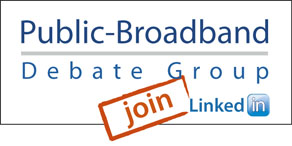The business case of FTTH/B for alternative operators seems much better than a standard techno-economic assessment would suggest.
Usually, the FTTH techno-economic models make assumptions for a clean-cut FTTH development. In these premises, the network deployment costs and (most importantly) ROI period and IRR are estimated on the basis of an ARPU forecast for a new entrant. These estimations oversee additional financial benefits of an established service provider stemming from existing business processes, facilities, operations and customers support (which account for significant cost and risk).
Competing service providers (referred to as alternative operators in Europe) pay currently an average of 8 euros for each unbundled local loop to the incumbent which aggravate their operational costs. FTTH obviously takes this cost off from OPEX. So although incumbents have more to consider when switching from copper to fiber, alternative operators have a tangible financial benefit at the LLU cost when switching from unbundled copper to FTTH.
This means that in an urban setting with an average cost per home passed at 500 euros alternative operators can recoup the investment in close to 5 years only by supplying access (not accounting for triple-play services). With cautious planning this period can decrease further. I’m not so sure that FTTH should be considered on the grounds solely of a real estate investment after all.

